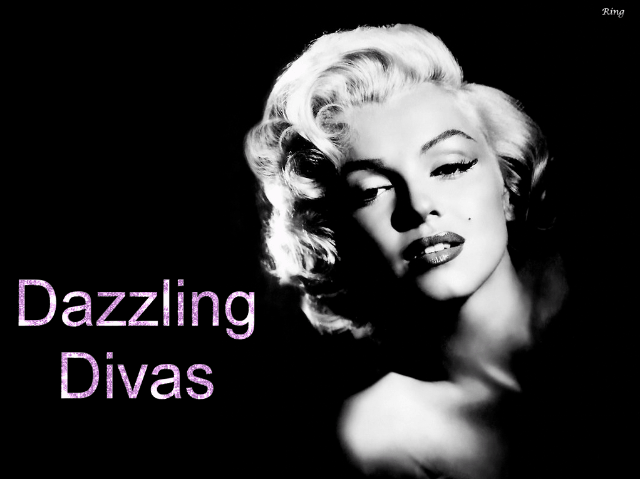The film stars Betty Grable, Marilyn Monroe and Lauren Bacall as fortune hunters with William Powell, David Wayne, Rory Calhoun, Tucker Cavenaugh, Cameron Mitchell, Alexander D'Arcy, and Fred Clark.
How to Marry a Millionaire was the first film ever to be photographed in the new CinemaScope wide-screen process, and the second released, after The Robe.
How to Marry a Millionaire was also the first 1950's color and Cinemascope film ever to be shown on prime time network television, when it was shown as the first installment of NBC Saturday Night at the Movies in 1961.
Plot summary
Resourceful Schatze Page (Lauren Bacall), spunky Loco Dempsey (Betty Grable), and ditzy Pola Debevoise (Marilyn Monroe) rent a luxurious Sutton Place penthouse from Freddie Denmark (David Wayne), who is avoiding the IRS by living in Europe. The women plan to use it to attract and marry millionaires. When money is tight, Schatze pawns some of Freddie's furniture, without his knowledge of course; as winter approaches, the furnishings gradually vanish.One day, Loco carries in some groceries, assisted by Tom Brookman (Cameron Mitchell). Tom is very interested in Schatze, but she knows from prior marital experience what he is — a "gas pump jockey" — and tries repeatedly to brush him off, without success. She has her sights on bigger game: the charming, classy widower J.D. Hanley (William Powell) whose worth is irreproachably large. All the while she's stalking the older J.D., Tom keeps after her. After every one of their dates, she tells him she never wants to see him again. She refuses to marry a poor man again.
Meanwhile, Loco (Grable) becomes acquainted with a grumpy businessman (Fred Clark). He's married, but she agrees to go with him to his "lodge" in Maine, mistakenly thinking she's going to meet a bunch of Elks Club members. When she learns the truth, she wants nothing to do with his plans. Unfortunately, she comes down with the measles and has to stay in the lodge until cured. She is nursed back to health with the help of a strapping young man named Eben (Rory Calhoun), who she thinks owns most of the surrounding land. She has no trouble transferring her affections to the handsome outdoorsman and they become engaged. When she finds out that he's just a forest ranger, guarding against fires on "his" land, she is very disappointed, but she loves him and is willing to overlook his financial shortcomings.
The third member of the group, Pola (Monroe), is hilariously nearsighted, but hates to wear her glasses where any man might see her. As she puts it, "Men aren't attentive to girls who wear glasses." (a takeoff of Dorothy Parker's "Men seldom make passes at girls who wear glasses.") She falls for a phony Arab oil tycoon, not knowing he's really a crooked speculator. Luckily, when she takes a plane to meet him, she misreads an airport sign and ends up on the wrong plane. She sits next to a man, also wearing glasses, who thinks she's "quite a strudel" and encourages her to put hers on. It turns out that he is the mysterious Freddie Denmark; he is on his way to Kansas City to find the crooked accountant who got him into trouble with the IRS. He doesn't have much luck when he tracks the man down (he gets beaten up), but has much more success with Pola.
Loco, and Pola are reunited with Schatze just before her wedding. She finally managed to overcome J.D.'s qualms about their age difference. Tom shows up and is recognized by the groom. It turns out that Tom is by far the richer of the two men. J.D. has an inkling how things are going to turn out, so he is not too surprised when Schatze finds herself unable to go through with the wedding because she doesn't love him. J.D. leaves graciously and Schatze, against her better judgement, ends up marrying Tom.
Afterwards, the three happy couples end up at a greasy spoon, dining on hamburgers. Tom breaks the news to Schatze that he is extremely wealthy, naming all the things he owns, but she thinks he's kidding. He then pays the bill, pulling out an enormous wad of money. The three women faint dead away. The men then drink a toast to their unconscious wives.
Music
The film features an actual overture after the fashion of a live theatrical extravaganza. The 20th Century Fox Orchestra is arrayed before the camera to perform "Street Scene," conducted by its composer (and Fox studio music chief) Alfred Newman. This serves to highlight CinemaScope's new four-track magnetic stereophonic sound system and widescreen visuals. The orchestra appears throughout in wide shots and there are no closeups of any of the players, nor of Newman. At the conclusion of "Street Scene," Newman turns to take a bow before launching into the "Main Title". The orchestra reappears briefly for the "End Title", also an arrangement of "Street Scene".Newman originally composed "Street Scene" for the film version of Elmer Rice's play Street Scene (1931), a flattering portrayal of New York (which explains its distinctly Gershwinesque flavour, a la Rhapsody in Blue), and used it in numerous subsequent New York-based films (The Dark Corner, Kiss of Death, Cry of the City, I Wake Up Screaming, How to Marry a Millionaire). Much of the rest of the score for How to Marry a Millionaire consists of similarly familiar, preexisting compositions, including several pieces composed by George Gershwin.
The music soundtrack from How to Marry a Millionaire was released on CD by Membran International in 2004. The film's arrangement of Newman's "Street Scene" was performed in 1973 by National Philharmonic Orchestra, conducted by Charles Gerhardt, for the album Captain from Castille - Classic Film Scores of Alfred Newman, accompanied by a booklet in which Page Cook chronicles the background of the piece.





Fantastic! Thank you, Ms. Hollywood!
ReplyDelete- Glenn
Its a pleasure Glenn enjoy the Film!!!!!
ReplyDelete